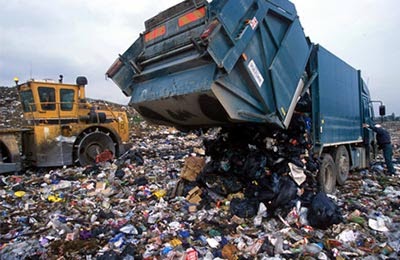 |
| Solid Waste Management System in Pakistan |
Some other keywords that are considered as similar to this include Garbage, trash and rubbish.
Now if we talk about the management of this solid waste, termed as solid waste management, we mean it as generation, separation, collection, transfer, transportation and disposal of waste in a way that takes into account public health, economics, conservation, aesthetics, and the environment, and is responsive to public demands.
Common Types of Waste mostly generated
The most common types of solid waste are:
• Municipal solid waste
• Industrial waste
• Agricultural waste
• Hazardous waste
The solid waste composition varies from region to region and time to time. There are following different types of waste.
Biodegradable waste i.e. could be decomposed naturally such as food and kitchen waste, green waste, paper, etc.
Recyclable material i.e. could be recycled again and again; such as paper, glass, bottles, cans, metals, certain plastics ,fabrics, clothes, batteries etc.
Inert waste i.e. not liable to decompose; such as construction and demolition waste, dirt, rocks, debris, etc.
Electrical and electronic waste (WEEE); such as electrical appliances, TVs, computers, screens, etc.
Composite wastes; such as waste clothing, Tetra Packs, waste plastic, etc.
Domestic hazardous waste & toxic waste medication; such as paints, chemicals, light bulbs, fluorescent tubes, spray cans, fertilizer and pesticide containers, shoe polish, etc.
Failure of SWM in Pakistan
The consequences of failure of this solid waste management system are disastrous for the health of the community and the smooth running of life in that region. Some common problems as seen because of this failure includes, land and air pollution, blockage of drains and water pollution in natural streams.
Factors affecting solid waste management
The success or failure of this management system is dependent on many factors and many areas are there to be considered like public awareness because you can’t hold of the garbage thrown every second on the local street by the so-called educated humans, similarly due to increase of population there is an unplanned city growth that causes troubles and difficulties for the authorities to handle such a large amount of garbage. Mostly in cities and municipalities in Pakistan there are although no proper system of disposal management or even if it is there the maintenance and proper functioning are not up to the mark. The other very important factor to be considered is the rate of urbanization with the advancements and development in countries the communities are shifting from rural areas and urban areas and thus more utilization of advance products and thus more garbage is there.
Solid Waste Collection system in Pakistan and its effects
In Pakistan the absence of a proper solid waste disposal system and huge amount of uncollected wastes posses great threat to the public health as they are the source of mosquitoes and cholera which transmit malaria and cholera later on. One of a very hazardous and un-noticed drawback of the waste disposal in Pakistan is that hospital and industrial waste is treated as ordinary waste.
The condition of waste management system from the collection of waste to its proper disposal is, to put it mildly, pathetic in Pakistan. Only 50% of solid waste quantities generated are collected by government services. However, for cities to be clean, at least 70% of these quantities should be collected.
Increase in the solid waste is due to increase in urban population, industrialization, changing consumption pattern and also effluent life style. Due to these trends many cities are unable to cope with increase volume of solid waste, especially in middle and low income countries. During the late period of 1900’s annual waste production ranged from 300-800 kg per person in many developed countries to less than 200 per kg per person in less developed countries.
In Pakistan solid waste management is a significant problem being faced. Despite of the fact that there are many polices being formulated for the protection of the environment from solid waste but these policies are only implemented in cities. In rural areas of Pakistan mostly open dumping is done.
A number of municipalities have deployed sweepers for waste collection but the service is reported to be irregular and limited to prominent administrative or commercial areas. Citizens are not provided with enough rubbish bins. In fact, those bins can only be found along the main roads. Those who live further away prefer not to take the trouble: the majority of home waste ends up being thrown away on empty plots.
Solid Waste Management consists of various stages including primary collection that is done from house hold to dust bin sites manually. Secondary collection is done from dust bin sites to land fill sites mechanically and final disposal is at landfill sites.
Like Us on Facebook!
Integrated Solid Waste management (ISWM) is a combination of those activities that best protects the community itself and environment. For ISWM a sustainable approach is required by giving the stake holders to participate in the process of ISWM and share their responsibilities.
Subscribe Us on YouTube!
Some of the significant features of solid waste management shows that the composition of solid waste in Pakistan that comes from different sources have a high percentage of organic waste, that can be recovered via composting and recycling. In most cities of Pakistan poor collection and transportation of municipal solid waste is reported.
The estimated quantity of solid waste generation in Pakistan ranges between 0.283 to 0.612 kg / capital / day and waste generation growth rate is 2.4 percentages per year. Due to poor solid waste management there are large number of communicable diseases and unhygienic environment being created.
Much of the uncollected waste ultimately finds its way into empty plots, farming land, pits and ponds. It creates an ideal environment for flies and mosquitoes to dwell on and is not only harmful for the people living in that area, but also for plants and animals.
In Pakistan Solid Waste management has not been carried out in proper manner and the condition is getting worse by the time. The major problem causing factors are rate of urbanization, composition of waste, scavenger role for recyclable separation and the capacities of existing municipalities for solid waste management.
For the change of attitude and behavior of public, education and awareness is very important. For this purpose we may use different strategies, e.g., education session for common man regarding disposal of garbage. By this way we can educate the common man regarding how they can play their role in solid waste management.
Conclusion and Recommendations
The recommendations that can be considered for the improvement of the current situation regarding solid waste management in Pakistan includes, raising awareness about consequences caused by solid waste pollution, role of government sector, NGO’s, Private sector collectively for solid waste management, legislation should be done which would be effective and find ways to implement it effectively, application of 3R’s (Reduce, Recycle and Reuse) concept in solid waste management. House to house collection of solid waste should be organized. Littering of solid waste should be prohibited in cities, towns and urban areas. Proper segregation would be vital for scientific disposal of waste. Developing legal framework and national guidelines for solid waste management that includes waste management rules and basic recycling rules.












Developing legal framework and national guidelines for solid waste management is the most important step in my opinion!
Developing legal framework and national guidelines for solid waste management is the most important step in my opinion!
(o)
(o)
That was really interesting for me, because I work in a rubbish removal company. I can see some really big problems in their system in Pakistan. |They really have to make it better!
That was really interesting for me, because I work in a rubbish removal company. I can see some really big problems in their system in Pakistan. |They really have to make it better!
The problem with the solid waste is not from yesterday. I think that it is high time something to be done for that problem. This waste was once in our houses so I am sure that there is a way to reuse it again!
The problem with the solid waste is not from yesterday. I think that it is high time something to be done for that problem. This waste was once in our houses so I am sure that there is a way to reuse it again!